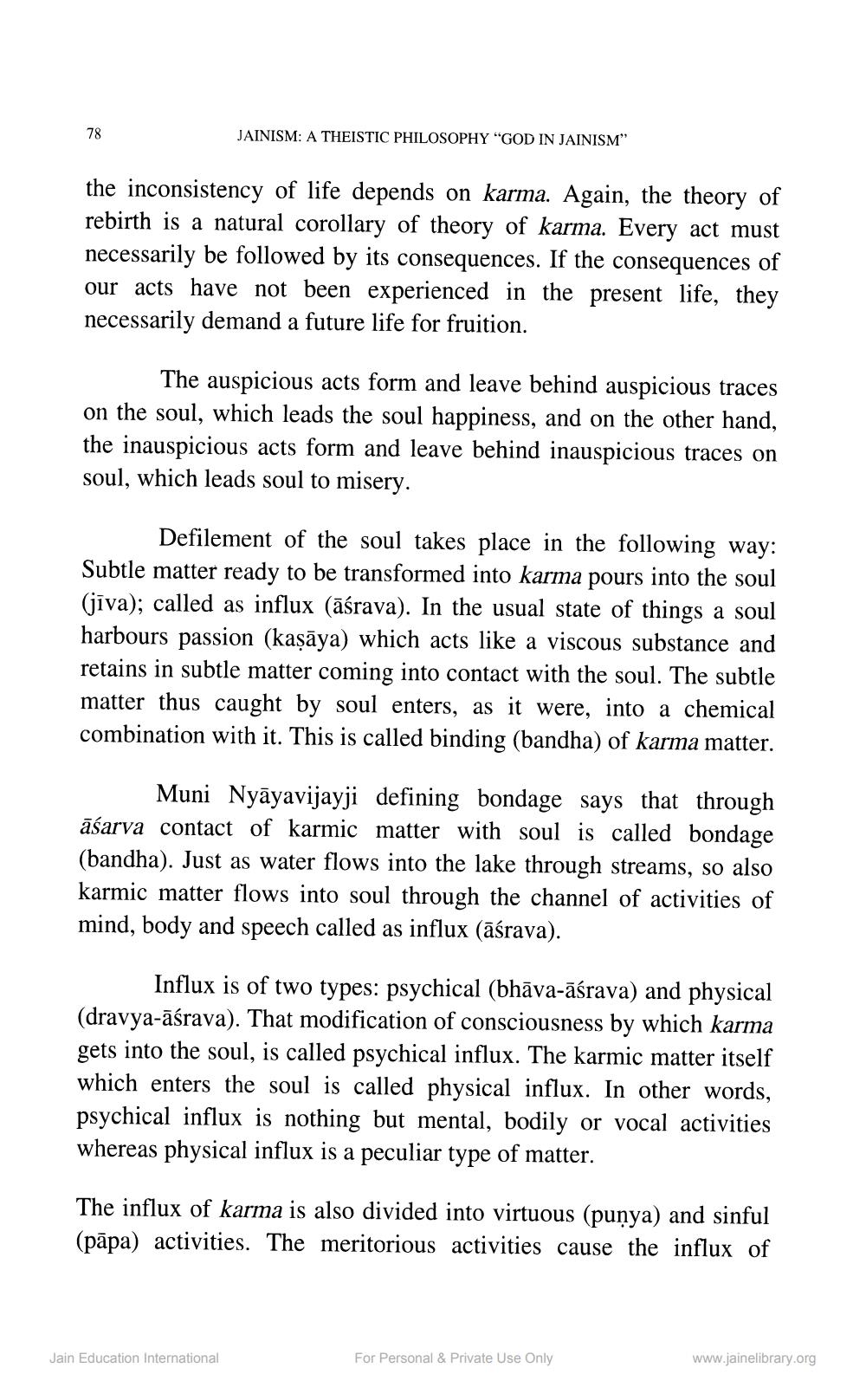________________
JAINISM: A THEISTIC PHILOSOPHY "GOD IN JAINISM"
the inconsistency of life depends on karma. Again, the theory of rebirth is a natural corollary of theory of karma. Every act must necessarily be followed by its consequences. If the consequences of our acts have not been experienced in the present life, they necessarily demand a future life for fruition.
The auspicious acts form and leave behind auspicious traces on the soul, which leads the soul happiness, and on the other hand, the inauspicious acts form and leave behind inauspicious traces on soul, which leads soul to misery.
Defilement of the soul takes place in the following way: Subtle matter ready to be transformed into karma pours into the soul (jīva); called as influx (āśrava). In the usual state of things a soul harbours passion (kaşāya) which acts like a viscous substance and retains in subtle matter coming into contact with the soul. The subtle matter thus caught by soul enters, as it were, into a chemical combination with it. This is called binding (bandha) of karma matter.
Muni Nyāyavijayji defining bondage says that through āśarva contact of karmic matter with soul is called bondage (bandha). Just as water flows into the lake through streams, so also karmic matter flows into soul through the channel of activities of mind, body and speech called as influx (āśrava).
Influx is of two types: psychical (bhāva-āśrava) and physical (dravya-āśrava). That modification of consciousness by which karma gets into the soul, is called psychical influx. The karmic matter itself which enters the soul is called physical influx. In other words, psychical influx is nothing but mental, bodily or vocal activities whereas physical influx is a peculiar type of matter.
The influx of karma is also divided into virtuous (punya) and sinful (pāpa) activities. The meritorious activities cause the influx of
Jain Education International
For Personal & Private Use Only
www.jainelibrary.org




